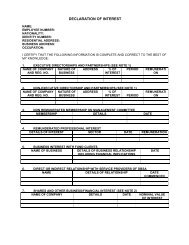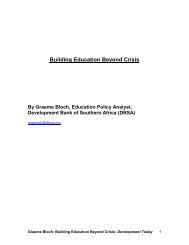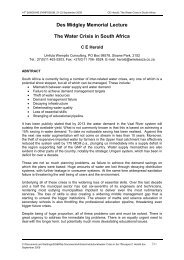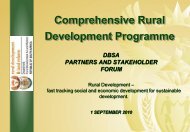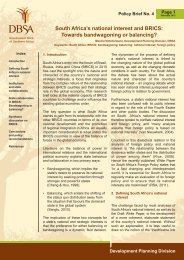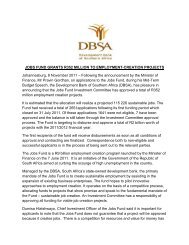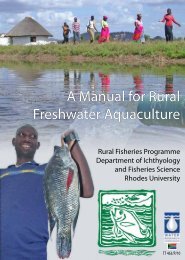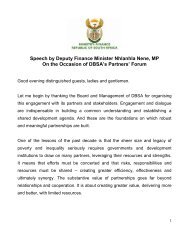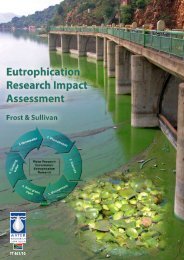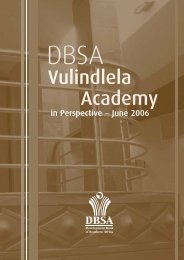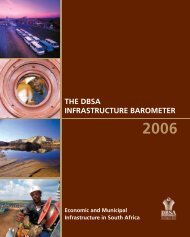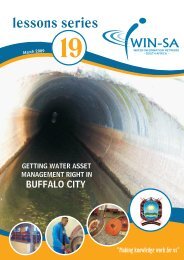A Knowledge Strategy
A Knowledge Strategy
A Knowledge Strategy
You also want an ePaper? Increase the reach of your titles
YUMPU automatically turns print PDFs into web optimized ePapers that Google loves.
• stakeholder and beneficiary knowledge and learning dissemination points<br />
such as multi-purpose community centre (MPCC) networks;<br />
• market community media – packaged and specially prepared communication<br />
media for target groups;<br />
• information and development support materials – packaged materials for<br />
informal and formal external systems;<br />
• working interfaces between government policy frameworks, development<br />
banking, the DBSA, and the Bank’s partners and stakeholders;<br />
• systematic debriefing and sharing of development intelligence.<br />
1.5.4 <strong>Knowledge</strong> accounting – evaluating knowledge management efforts and resources<br />
<strong>Knowledge</strong> is a living entity. It is never in any respect final. Continuous evaluation<br />
will be required to audit activities, determine the appropriateness of the current<br />
system and reconcile findings in relation to existing opportunities. The knowledge<br />
infrastructure should account for this through:<br />
• regular knowledge surveys and audits;<br />
• efficient knowledge inventory management, including data archiving and<br />
retrieving;<br />
• quantification of knowledge generation and utilisation; identification of<br />
sources and applications, and identification of current and potential internal<br />
and external users;<br />
• creation of a knowledge marketing plan, comprising packaging, pricing,<br />
branding, positioning and distribution;<br />
• formulation of knowledge accounting parameters, systems, indicators,<br />
variables and reporting practices;<br />
• knowledge benchmarking and tracking;<br />
• knowledge reporting in comprehensive and novel ways such as an account of<br />
knowledge management being included in the Annual Report.<br />
1.5.5 <strong>Knowledge</strong> partnerships – sustained and enhanced partnerships mutually furthering<br />
development knowledge<br />
The DBSA does not conduct primary research, but uses information generated by<br />
external agents as sources to enhance its knowledge base. It is essentially a<br />
knowledge broker. Further establishing smart partnerships with research<br />
communities such as tertiary education facilities, research centres, government and<br />
non-governmental development agencies, and other development finance<br />
institutions will continue to improve the knowledge base of the DBSA. Such<br />
relationships provide a number of benefits:<br />
• differentiated roles that minimise overlap – this benefits all partners, allowing<br />
each to complement the other’s area of expertise interests and collaborate in<br />
pursuing a shared vision;<br />
• better planning – resulting in increased support for development outcomes;<br />
• effective knowledge transfer, cross-national (or regional) co-operation, the creation<br />
of networks, capacity development and penetration of development markets.<br />
6 Development Bank of Southern Africa



